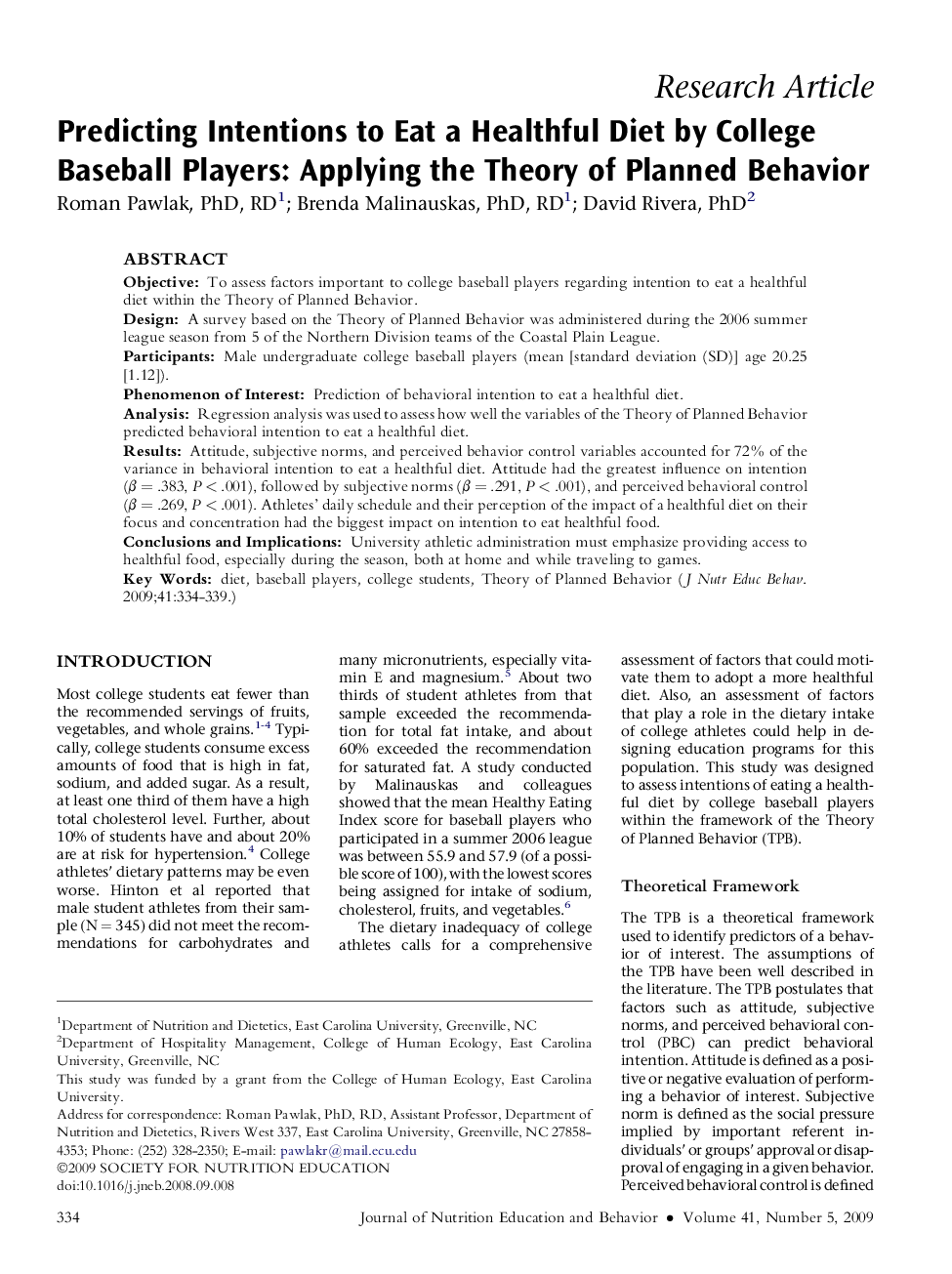| Article ID | Journal | Published Year | Pages | File Type |
|---|---|---|---|---|
| 363072 | Journal of Nutrition Education and Behavior | 2009 | 6 Pages |
ObjectiveTo assess factors important to college baseball players regarding intention to eat a healthful diet within the Theory of Planned Behavior.DesignA survey based on the Theory of Planned Behavior was administered during the 2006 summer league season from 5 of the Northern Division teams of the Coastal Plain League.ParticipantsMale undergraduate college baseball players (mean [standard deviation (SD)] age 20.25 [1.12]).Phenomenon of InterestPrediction of behavioral intention to eat a healthful diet.AnalysisRegression analysis was used to assess how well the variables of the Theory of Planned Behavior predicted behavioral intention to eat a healthful diet.ResultsAttitude, subjective norms, and perceived behavior control variables accounted for 72% of the variance in behavioral intention to eat a healthful diet. Attitude had the greatest influence on intention (β = .383, P < .001), followed by subjective norms (β = .291, P < .001), and perceived behavioral control (β = .269, P < .001). Athletes' daily schedule and their perception of the impact of a healthful diet on their focus and concentration had the biggest impact on intention to eat healthful food.Conclusions and ImplicationsUniversity athletic administration must emphasize providing access to healthful food, especially during the season, both at home and while traveling to games.
